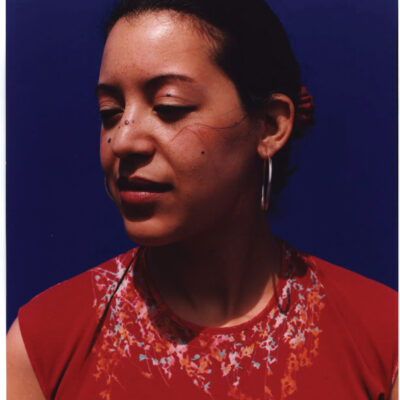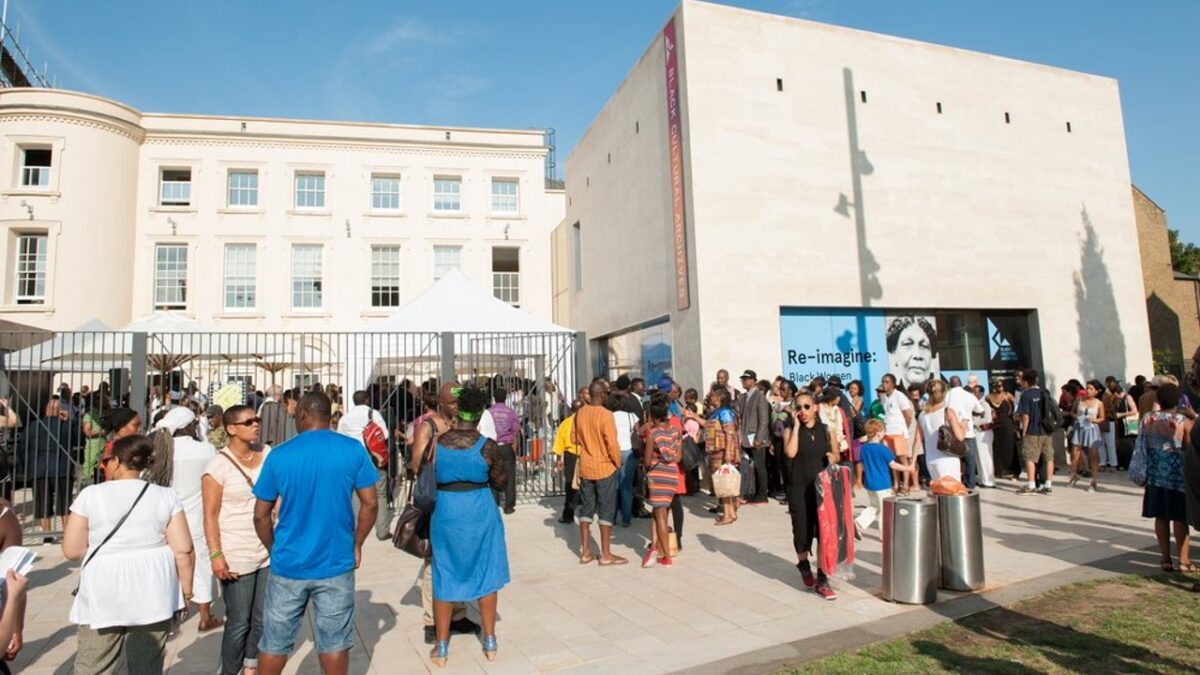
Melanie Abrahams
“I want to see the UK’s heritage sector being welcoming to everyone and telling stories in an engaging and inclusive way.”
Lisa Anderson, the Managing Director of Black Cultural Archives (BCA), is reflecting on her organisation’s values — Disrupt, Reflect, Empower, Ignite, and Champion — recently set by its senior leaders. “Our values inspire and challenge us to meet them,” she says. Lisa and her staff and volunteers are keen to ensure they realise their mission to bring out the phenomenal everyday histories of the UK’s often overlooked Black communities.
BCA is a national organisation based in Windrush Square in the heart of Brixton, London. It was founded in 1981 by Len Garrison to collect, preserve and celebrate the histories of people of African and Caribbean descent to strengthen individuals, communities, and societies at large, building on an informal history of social activism over four decades. Given its social, political, and cultural importance, BCA has engaged in conversations around reparations, Windrush justice and other vital areas. The organisation has global significance as one of the first national heritage organisations to prioritise a living archive of the story of Black people in British society through a reading/research room, an extensive archive of collections visited by thousands of students and public members, and an events program.

Black Cultural Archives on the opening day of its latest building in 2014
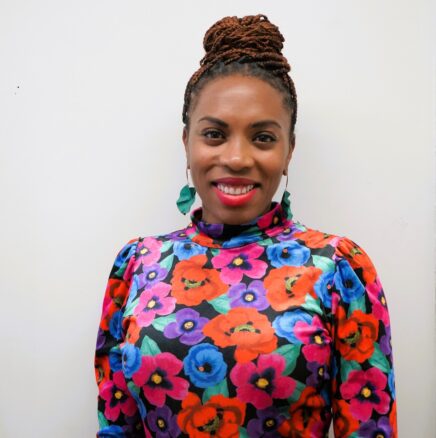
Lisa Anderson, Managing Director of Black Cultural Archives
BCA’s Seeing Ourselves program, funded by the Esmée Fairbairn Foundation, opens employment and career fulfilment pathways for Black and global majority students and professionals in the arts and heritage sector. Built on the belief that BCA owes its existence to the skills and passion of dedicated volunteers preserving Black history, the program honours their commitment. It serves as a valuable resource, empowering countless individuals. Many program participants, lacking specialised archiving knowledge, have transitioned to prominent roles in heritage, charity, and arts sectors. BCA acknowledges their contributions by providing opportunities to acquire archiving skills and professional expertise, thereby impacting the broader arts and heritage landscape, where leadership representation for individuals of Black and global majority backgrounds is often lacking.
The activities offered include Pathways: an annual conference of inspiring speakers, panels and workshops that encourages and strengthens pathways into arts and heritage and is aimed at students and emerging practitioners of college age and above; specific training and mentoring for black and global majority professionals interested in playing a leading role in arts and heritage as an effective trustee; a Race in Heritage Award, a standard of excellence that heritage organisations can aim to achieve with regards to their commitment to race and equality in the workplace; and, Learning Materials for eight to 11-year-olds which is based on the evidence that so many ideas of what is possible for yourself get formed at a very young age, and so an opportunity to access learning materials that elevate and inspire can make an extraordinary difference to young people’s formative experiences in their primary schools.
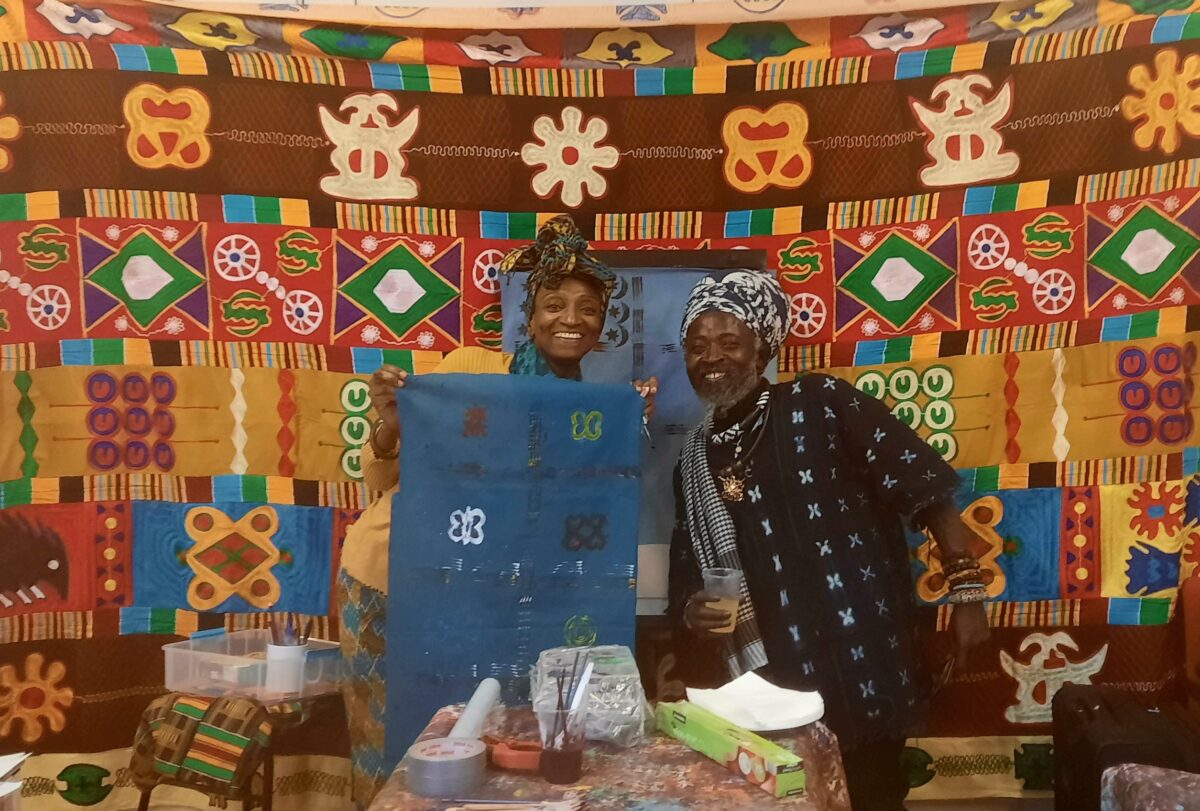
Volunteer and Workshop Leader – Volunteer Week 2022
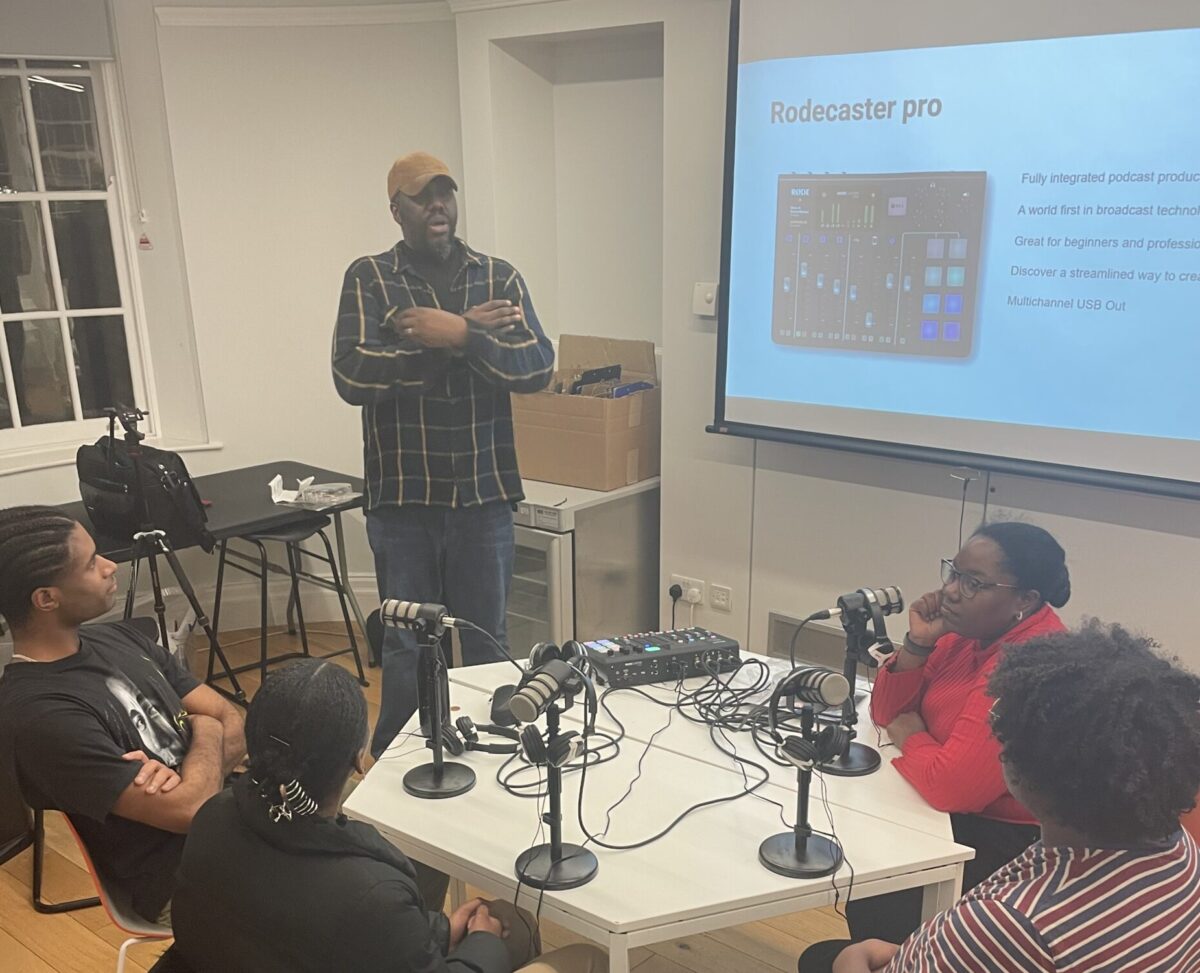
Everyone + Equipment Podcast Training Programme
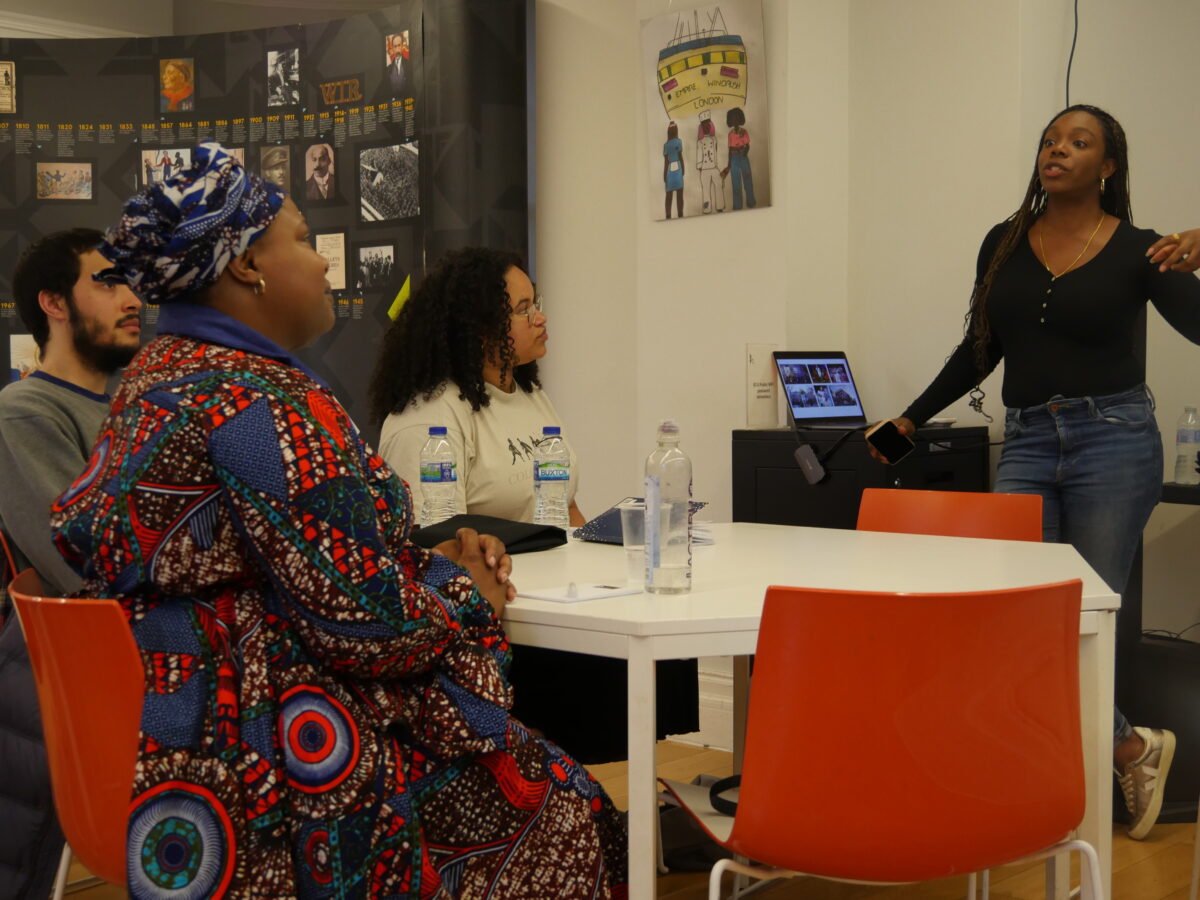
Arts Marketing 2023- Pathways 2023
Key takeaways
-
- Be the thing you want to see
“It’s important to champion something and reflect that commitment through your values, throughout the work and how you engage with people. That’s what makes a project really sing” - Reflection
“We value the importance of reflection, particularly historical reflection and taking the time to sit with what has gone on and consider what that represents and its value.” - Partnership
“We can’t do it all on our own. We are not trying to be the answer to everything. So, we are committed to growing partnerships.” - Ignition
“Creation and innovation need ignition. The people who come to research history at the archives are often creating new knowledge or culture; they are igniting new conversations through their art form or practice.”
- Celebrating Each Other
“Celebration is important. We want our teams of volunteers and people to feel valued and cherished. It can feel very daunting if you don’t come from a particular background to pursue a career in arts and heritage, whether it’s about pay, feeling you fit in, or knowing whether you can have a fulfilling career unless you see examples of that.”
- Acting On Our Strengths
“Our key value in Black history and heritage is being a leading national convenor of the conversation. We are harnessing the power of our archive as source material, inspiration, and knowledge. That’s where our power is. If there’s that golden thread through everything, there’s real integrity in what we do.”
- Be the thing you want to see
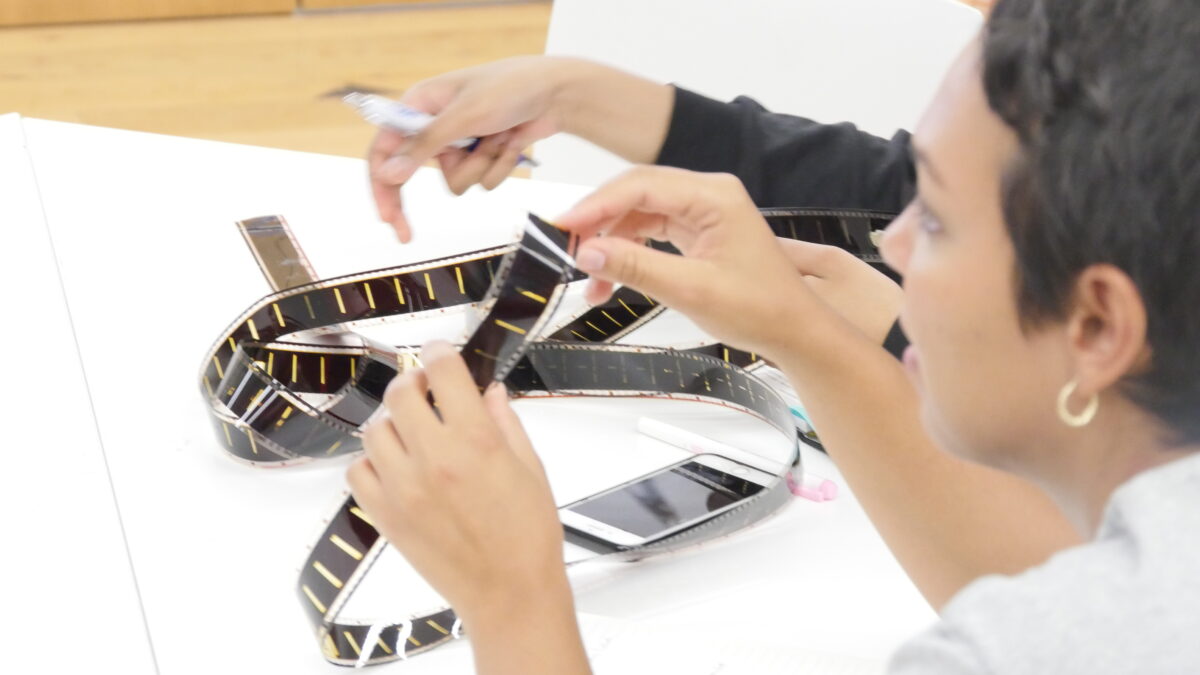
Film Achiving
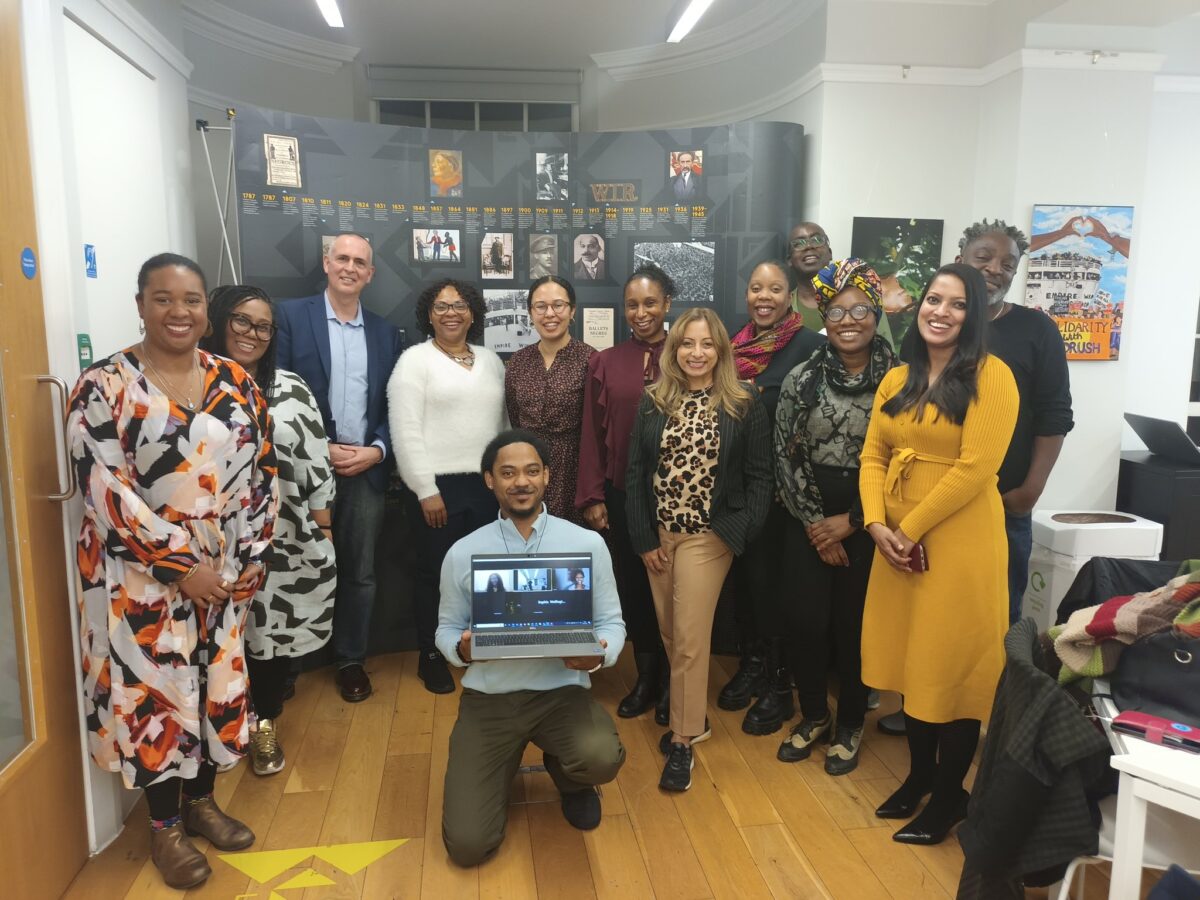
BoB 2022 cohort
Melanie Abrahams
Melanie Abrahams has been creating multidisciplinary events, festivals and occasions for conversation and wellbeing for 25 years, as a curator, consultant, producer and public speaker. She consistently pushes for greater diversity in the arts, with a focus on race, class and intersectionality. She set up Renaissance One to support outstanding artists who were deserving of a greater profile and clients include John Agard, Grace Nichols, Patience Agbabi, Seni Seneviratne, 2023 T.S.Eliot and Forward Prize winner Jason Allen-Paisant and calypsonian Tobago Crusoe. As a curator-producer, she has collaborated with Chris Ofili, V&A, Bernardine Evaristo, British Council and the Museum of Modern Art (Finland).
What is the Imagine Around the World Project?
A partnership with the British Council Australia, the Imagine Around The World Project aims to document case studies from numerous countries to share best practice and leadership in cultural diversity, cultural equity and inclusion in the arts, screen and creative sectors. This project is managed by Diversity Arts Australia and supported by Creative Equity Toolkit partner, British Council Australia. To find out more click below – or read the other case studies as they go live here.

